The Royal Family: politically irrelevant anachronism? Fodder for tourism? Or enduring symbol of what it means to be British? Mike Bartlett’s shrewd new drama, in a taut, economical and strongly acted production by Rupert Goold, tussles with issues of the limits and shifting values of monarchical power, and with questions of national identity. It has a playfulness that occasionally borders on the glib – yet it also has teeth. It’s unquestionably clever, but it sometimes feels like a game of chess in which Goold and Bartlett move the pieces around the board with such skilful deliberation that a disengaging air of contrivance creeps in. Yet by the end, the personal and the political collide with real force, giving Tim Pigott-Smith’s betrayed Charles a quality of tragic despair.
Queen Elizabeth II is dead; at long last, her ageing son will get his chance to rule. In dialogue that is couched mostly in iambic pentameter and scenes that recall not just Shakespeare’s history plays but also nod to Macbeth, Hamlet and King Lear, Bartlett presents us with a Charles fiercely devoted to the duty for which he was born and bred, and determined to be more than just a figurehead – or, as he puts it, a Spitting Image puppet, only animated by the hands of others. What’s more, he has reason to believe he may even become a hero: the ghost of his first wife, Princess Diana, gliding through the the palace walls, her black-veiled head tilted and her Sloane Rangerish tones gently manipulative, assures him he will be the greatest of kings.
Small wonder that the spirit of Diana refuses to rest in peace
Scarcely is Elizabeth’s funeral over when the heir to the throne, meeting with both the Prime Minister and his counterpart in Opposition, refuses to consent to a new law imposing restrictions on the press. The move causes consternation, and – after, like his ill-fated namesake Charles I, he turns up in the House of Commons, where he attempts to dissolve Parliament and force an election – riots break out across the country. It’s constitutional crisis; and with William (Oliver Chris) and Kate (Lydia Wilson) the darlings of the media and of popular opinion, the Duchess spies her opportunity to escape her role as hair-flicking, perma-smiling “plastic doll” and encourages her husband to step in and settle matters.
 Meanwhile, Prince Harry (Richard Goulding), chafing under the privations of his pointless royal life as “a ginger joke, bereft of value”, meets and falls in love with an art student from New Cross, Jess (Tafline Steen), and begins to yearn for a commoner’s life and a proper job. Charles consents to release him from the family – but all that is imperiled when Jess’s ex sells compromising pictures of her to the media. Small wonder that the spirit of Diana, herself hounded to death by the press, refuses to rest in peace.
Meanwhile, Prince Harry (Richard Goulding), chafing under the privations of his pointless royal life as “a ginger joke, bereft of value”, meets and falls in love with an art student from New Cross, Jess (Tafline Steen), and begins to yearn for a commoner’s life and a proper job. Charles consents to release him from the family – but all that is imperiled when Jess’s ex sells compromising pictures of her to the media. Small wonder that the spirit of Diana, herself hounded to death by the press, refuses to rest in peace.
Goold stages the action, on Tom Scutt’s simple dais set, with elegance, and Pigott-Smith, capturing Charles’s physical and vocal mannerisms without resorting to mere mimicry, is touching, passionate and discreetly, winningly mischievous. Indeed, this is an irreverent but largely sympathetic family portrait. It’s a shame its snapshot of national attitudes towards the Royals isn’t more sharply focused; but as a speculation on our future, it’s intelligent and compelling.




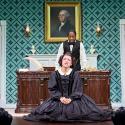

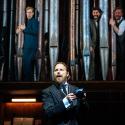

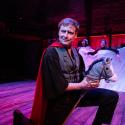
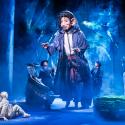
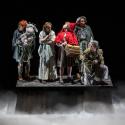
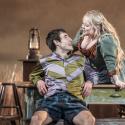

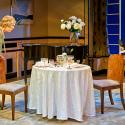
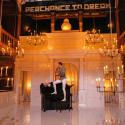
Add comment